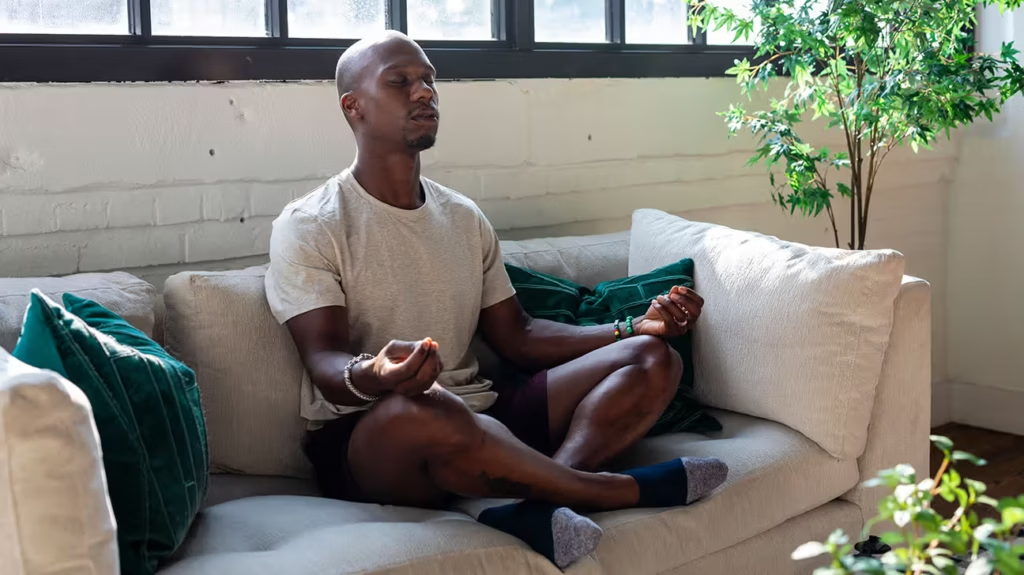Anxiety can feel overwhelming, exhausting, and unpredictable. But with the right holistic tools, it’s possible to regain control and build inner peace. Holistic anxiety management addresses not just the mind, but the body, lifestyle, and environment. This integrative approach empowers individuals to reduce symptoms and improve their quality of life through natural, supportive practices.
Here, we explore evidence-based techniques you can begin using today to manage anxiety holistically.
Understanding Holistic Anxiety Management
A Whole-Person Perspective
Unlike conventional treatments that focus solely on symptoms, holistic care recognizes that anxiety is affected by:
- Nutrition
- Sleep
- Movement
- Environment
- Thought patterns
- Social connection
Each of these areas can either reduce or worsen anxiety. Holistic tools target the root causes and restore balance naturally.
Nutrition and Anxiety
Food as Medicine
What you eat plays a direct role in your mental health. To reduce anxiety, prioritize:
- Omega-3 rich foods: salmon, flaxseeds, walnuts
- Magnesium-rich foods: spinach, avocados, legumes
- Complex carbs: oats, sweet potatoes, brown rice
- Probiotic foods: yogurt, kimchi, sauerkraut
Foods to Avoid
Reduce intake of:
- Caffeine
- Alcohol
- Sugar
- Processed foods
These can cause spikes and crashes in blood sugar or stimulate the nervous system, worsening anxiety.
Mindfulness & Meditation
Grounding Your Mind
Mindfulness encourages non-judgmental awareness of the present moment. Regular meditation has been shown to:
- Decrease amygdala activity (stress center of the brain)
- Improve emotional regulation
- Lower cortisol levels
Start with 5–10 minutes of deep breathing or guided meditation daily.

Movement and Exercise
Move to Calm Your Nervous System
Exercise releases endorphins and improves sleep, both of which reduce anxiety. Recommended activities:
- Walking in nature
- Yoga or tai chi
- Swimming
- Dancing or cycling
Aim for 30 minutes of moderate activity 3–5 times a week.
Herbal and Natural Remedies
Plant-Based Support
Some natural remedies shown to help with anxiety include:
- Ashwagandha: adaptogen that lowers cortisol
- Lavender oil: promotes calm
- Chamomile tea: reduces restlessness
- Magnesium supplements: helps with tension and sleep
Consult a healthcare provider before starting new supplements.
Sleep Hygiene for Anxiety Relief
Quality Sleep Is Essential
Poor sleep increases emotional reactivity and impairs coping. Improve sleep by:
Keeping a regular sleep schedule
Avoiding screens before bed
Using blackout curtains
Practicing a calming bedtime ritual
If needed, try natural sleep aids like melatonin or valerian root.
Cognitive and Emotional Tools
Rewire Your Thoughts
Cognitive Behavioral Therapy (CBT) techniques can be practiced at home to:
- Challenge irrational fears
- Replace negative self-talk
- Build coping statements
Journaling, affirmations, and gratitude practices also build emotional resilience.
Breathwork and Nervous System Regulation
Breathe Your Way to Calm
Breathwork activates the parasympathetic nervous system. Try:
- Box breathing: inhale, hold, exhale, hold (4 seconds each)
- 4-7-8 breathing: inhale 4, hold 7, exhale 8
- Alternate nostril breathing: balances brain activity
Just 5 minutes a day can significantly reduce anxiety.
Social Support and Connection
The Power of Relationships
Social connection reduces loneliness, a major contributor to anxiety. Nurture relationships by:
- Spending time with supportive friends or family
- Joining support groups or spiritual communities
- Practicing open communication
Environment and Lifestyle Design
Create a Calming Environment
Your surroundings affect your mental state. Support a calm mind by:
- Decluttering your space
- Using calming scents (lavender, eucalyptus)
- Adding plants or natural elements
Minimize exposure to digital overload and overstimulating environments.
When to Seek Professional Help
Know When You Need More Support
Holistic methods can complement professional care, but they aren’t always a substitute. Seek guidance if:
- Anxiety interferes with daily life
- You experience panic attacks or trauma symptoms
- You feel hopeless or overwhelmed
Therapists, integrative physicians, and wellness coaches can help you tailor a personalized plan.
Start Today, One Step at a Time
You don’t need to overhaul your life overnight. Start with one or two practices that feel most accessible. Whether it’s a morning walk, a mindful meal, or a 5-minute breathing exercise, small changes create big impact.
By supporting your mind and body holistically, you empower yourself to live with greater ease, resilience, and joy. Our dedicated providers are here to guide you every step of the way on your healing journey.
References
- https://www.ncbi.nlm.nih.gov/pmc/articles/PMC6835901/
- https://www.healthline.com/nutrition/anxiety-diet
- https://www.ncbi.nlm.nih.gov/pmc/articles/PMC6513565/
- https://www.ncbi.nlm.nih.gov/pmc/articles/PMC6224345/
- https://www.sleepfoundation.org/mental-health/anxiety-and-sleep
- https://www.ncbi.nlm.nih.gov/pmc/articles/PMC4278134/
- https://www.ncbi.nlm.nih.gov/pmc/articles/PMC6979303/
- https://www.ncbi.nlm.nih.gov/pmc/articles/PMC9552363/
- https://www.psychologytoday.com/us/basics/breathwork
- https://pubmed.ncbi.nlm.nih.gov/24560664/

